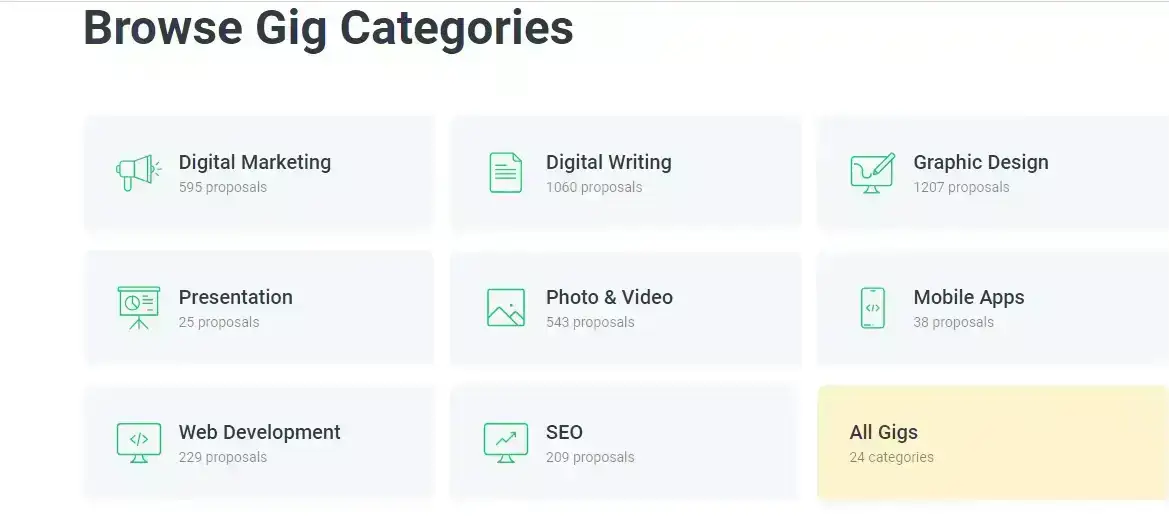
Published: | Last Updated:
Work-from-Home Jobs in Kenya
See What Others Are Using Right Now. Don't Miss Out!!!
👇
Finding Legitimate Work-from-Home Jobs in Kenya
In recent years, the demand for legitimate Work-from-Home Jobs in Kenya opportunities has surged, especially in regions like Nairobi and Nyeri. As more individuals seek flexibility and autonomy in their careers, finding genuine remote jobs becomes increasingly important. If you're based in Nairobi or Nyeri and looking to embark on a remote career journey, you're in the right place. In this guide, we'll walk you through the ins and outs of finding legitimate work-from-home jobs tailored to your needs and location.Understanding the Landscape of remote work
Before delving into the specifics of finding legitimate remote jobs, it's crucial to grasp the dynamics of the remote work landscape. Remote opportunities span various industries, including customer service, digital marketing, virtual assistance, writing, coding, and more. Whether you're a seasoned professional or a newbie in the job market, there are options available for everyone. The landscape of remote work has undergone a remarkable transformation in recent years, offering diverse opportunities across numerous industries. Understanding this landscape is vital for individuals seeking legitimate remote employment, regardless of their level of experience. Here's a closer look at the dynamics of remote work across different sectors:customer service:
Traditionally associated with call centres, customer service roles have transitioned to remote setups seamlessly. Many companies now employ remote customer service representatives who handle inquiries, troubleshoot issues, and provide support via phone, email, or live chat. This field offers entry-level positions with opportunities for growth and advancement.Digital Marketing:
The digital age has propelled the demand for remote digital marketing professionals. From social media management to search engine optimization (SEO) and content marketing , remote roles in digital marketing encompass a wide range of responsibilities. Professionals skilled in data analysis, content creation, and online advertising can thrive in this dynamic field.Virtual Assistance:
Virtual assistants play a crucial role in supporting businesses and entrepreneurs with administrative tasks, scheduling, email management, and more. Remote virtual assistants enjoy the flexibility to work from anywhere while providing valuable support to their clients. Strong organizational skills and attention to detail are essential for success in this role.Writing Job Opportunities:
With the rise of online content consumption, there's a growing demand for remote writers across various niches. From copywriting and content creation to blogging and technical writing, remote writing roles cater to diverse interests and expertise. Freelance writers often find remote opportunities through content agencies, job boards, and networking platforms.Coding Job Opportunities:
The tech industry has embraced remote work, particularly in software development and coding roles. Remote developers collaborate on projects using virtual communication tools and coding platforms. Whether specializing in web development, mobile app development, or software engineering , remote coders contribute to innovative projects from anywhere in the world.Other Industries:
Beyond these sectors, remote work opportunities exist in fields such as graphic design, finance, education, healthcare, and consulting. Remote professionals in these industries leverage technology to deliver services, collaborate with teams, and engage with clients remotely. The landscape of remote work is vast and diverse, offering opportunities for individuals with varying skill sets and backgrounds. Whether you're a seasoned professional looking for a career change or a newcomer entering the job market, remote work presents a viable option for achieving work-life balance, flexibility, and professional growth. By understanding the dynamics of remote work across different industries, you can explore opportunities that align with your interests, skills, and career goals.Key Strategies to Find Legitimate Work-from-Home Jobs
- Utilize Online Job Portals: Websites like FlexJobs, and Remote.co, Toloka, SproutGigs We Work Remotely, and Upwork are goldmines for remote job seekers. These platforms host a plethora of remote opportunities across diverse fields. Narrow down your search by filtering job listings based on your skills, experience level, and location (Nairobi or Nyeri).
FlexJobs:
FlexJobs is renowned for its curated listings of remote and flexible job opportunities. To make the most of FlexJobs:- Create a profile highlighting your skills, experience, and preferences.
- Use advanced search filters to narrow down listings by industry, job type, and location (e.g., Nairobi or Nyeri).
- Set up job alerts to receive notifications for new postings matching your criteria.
- Explore company profiles and research employers to ensure legitimacy and cultural fit.
Remote. co:
Remote. co specializes in remote work opportunities across various industries. Here's how to navigate the platform effectively:- Browse through the latest job listings categorized by job type and location.
- Take advantage of resources such as remote work tips, company profiles, and success stories.
- Participate in virtual events and webinars to expand your knowledge and network.
- Connect with other remote professionals through community forums and discussions.
Toloka Micro Jobs Opportunities:
Toloka is a crowdsourcing platform that offers remote micro tasks and freelance opportunities. To maximize your experience on Toloka:- Register as a contributor and complete the qualification tasks to access more opportunities.
- Explore available tasks ranging from data labelling and image annotation to content moderation.
- Monitor your earnings and track your progress on the platform.
- Stay updated on new tasks and projects by checking the platform regularly.
SproutGigs Small Tasks Website:
 SproutGigs is a comprehensive job board featuring remote opportunities across various sectors. Here's how to leverage SproutGigs effectively:
SproutGigs is a comprehensive job board featuring remote opportunities across various sectors. Here's how to leverage SproutGigs effectively:
- Use the search function to find remote jobs based on keywords, location, and job category.
- Customize your job alerts to receive notifications for relevant job openings.
- Research companies and read reviews from other users to assess credibility and reputation.
- Tailor your application materials to match the requirements and preferences of each job listing.
We Work Remotely:
We Work Remotely is a popular platform dedicated to remote job listings in fields like programming, design, and marketing. Here's how to navigate the platform efficiently:- Browse through remote job listings categorized by job type and skill set.
- Subscribe to the platform's newsletter to receive weekly updates on new job openings.
- Follow We Work Remotely on social media for additional job opportunities and insights.
- Showcase your expertise by creating a standout profile and portfolio.
Upwork Freelancing Platform:
Upwork is one of the largest freelancing platforms, offering remote opportunities for freelancers across the globe. Here's how to succeed on Upwork:- Create a compelling profile highlighting your skills, experience, and portfolio.
- Browse through available projects and submit tailored proposals to prospective clients.
- Build a strong reputation by delivering high-quality work and earning positive reviews.
- Utilize Upwork's messaging and collaboration tools to communicate effectively with clients.
- Network: Leverage professional networking platforms like LinkedIn to connect with industry professionals and companies offering remote positions. Join relevant groups and engage in discussions to expand your network and discover hidden job opportunities.
1. Optimize Your Profile:
- Ensure your LinkedIn profile is complete, professional, and up-to-date.
- Highlight your remote work experience, skills, and achievements.
- Use relevant keywords in your headline, summary, and job descriptions to attract recruiters and employers searching for remote talent.
- Upload a professional photo and customize your LinkedIn URL for a polished appearance.
2. Connect with Industry Professionals:
- Connect with professionals in your industry and related fields, including recruiters, hiring managers, and remote work advocates.
- Personalize connection requests with a brief message expressing your interest in remote work and highlighting mutual interests or connections.
- Engage with your connections by liking, commenting, and sharing their posts to stay on their radar.
3. Join Remote Work Groups:
- Join LinkedIn groups dedicated to remote work, digital nomadism, freelancing, and specific industries.
- Participate in group discussions, share insights, and ask questions to demonstrate your expertise and build credibility.
- Engage with group members by offering assistance, sharing resources, and networking with like-minded professionals.
4. Follow Companies Offering Remote Positions:
- Follow companies known for offering remote work opportunities and updates.
- Engage with their posts, articles, and updates to stay informed about their remote job openings and company culture.
- Set up job alerts to receive notifications when these companies post remote job listings.
5. Utilize LinkedIn's Job Search Feature:
- Use LinkedIn's job search feature to find remote job listings tailored to your skills and preferences.
- Filter search results by location (e.g., Nairobi or Nyeri), industry, job type, and remote work options.
- Save relevant job listings and set up job alerts to receive notifications for new remote opportunities.
6. Showcase Your Remote Skills:
- Highlight your remote work skills, such as time management, communication, collaboration, and adaptability, in your profile and job applications.
- Share remote work-related articles, case studies, and success stories to demonstrate your expertise and interest in remote work.
- Request recommendations and endorsements from previous colleagues and clients who can vouch for your remote work capabilities.
- Research Local Companies: Many businesses in Nairobi and Nyeri have transitioned to remote work setups, especially in light of recent global events. Conduct thorough research on local companies that offer remote positions or are open to remote work arrangements.
1. Use Online Directories and Listings:
- Explore online business directories specific to Nairobi and Nyeri to identify local companies.
- Look for listings that indicate whether companies offer remote work options or have transitioned to remote work setups.
- Pay attention to company descriptions, services offered, and contact information.
2. Check Company Websites and Careers Pages:
- Visit the websites of local companies to learn more about their operations, culture, and remote work policies.
- Navigate to the careers or job opportunities section to see if they have remote job openings listed.
- Look for any mentions of remote work arrangements or flexible work options in their company policies or employee testimonials.
3. Utilize Social Media and Online Communities:
- Follow local businesses on social media platforms like LinkedIn, Twitter, and Facebook.
- Engage with their posts, share relevant content, and participate in discussions to establish connections.
- Join online communities or groups focused on professional networking or job opportunities in Nairobi and Nyeri.
4. Reach Out to Current or Former Employees:
- Connect with current or former employees of local companies through LinkedIn or professional networking events.
- Send personalized messages expressing your interest in remote work opportunities and requesting information about their company's remote work policies.
- Ask for insights into the company culture, work environment, and potential remote job openings.
5. Attend Networking Events and Workshops:
- Attend local networking events, workshops, and industry conferences to meet professionals from local companies.
- Network with attendees, exchange contact information and follow up with individuals who may offer insights or job leads.
- Look for events specifically focused on remote work, flexible employment, or digital nomadism.
6. Research News Articles and Press Releases:
- Search for news articles, press releases, and blog posts about local companies in Nairobi and Nyeri.
- Look for announcements regarding remote work initiatives, expansions, or changes in company policies.
- Pay attention to any interviews or statements from company representatives about their approach to remote work.
7. Leverage Online Reviews and Ratings:
- Read online reviews and ratings of local companies on platforms like Google, Glassdoor, and Trustpilot.
- Look for comments or testimonials from current or former employees mentioning remote work experiences or policies.
- Consider the overall reputation and employee satisfaction ratings of companies offering remote positions.
- Attend Virtual Job Fairs and Workshops: Keep an eye out for virtual job fairs and workshops hosted by organizations or recruitment agencies. These events provide an excellent opportunity to interact with employers and learn about available remote job openings.
1. Stay Informed About Upcoming Events:
- Keep an eye on industry websites, social media platforms, and professional networking groups for announcements about virtual job fairs and workshops.
- Subscribe to newsletters or mailing lists of organizations, recruitment agencies, and job portals to receive updates about upcoming events.
2. Register Early:
- Once you find a virtual job fair or workshop that interests you, register as soon as possible to secure your spot.
- Some events may have limited capacity or early registration discounts, so don't wait until the last minute to sign up.
3. Prepare Your Elevator Pitch:
- Craft a concise and compelling elevator pitch that highlights your skills, experience, and interest in remote work.
- Practice delivering your pitch confidently and concisely, focusing on how you can contribute value to potential employers.
4. Research Participating Companies:
- Review the list of participating companies and research each organization beforehand.
- Familiarize yourself with their products, services, company culture, and any remote job openings they may have.
- Prepare specific questions to ask recruiters or representatives during the event.
5. Update Your Resume and Portfolio:
- Ensure your resume and portfolio are up-to-date and tailored to remote job opportunities.
- Highlight relevant remote work experience, skills, and achievements that demonstrate your suitability for remote positions.
- Have digital copies of your resume and portfolio ready to share with recruiters or upload to virtual booths.
6. Participate Actively:
- Engage actively during virtual job fairs and workshops by attending presentations, panel discussions, and networking sessions.
- Introduce yourself to recruiters, ask questions, and express your interest in remote job opportunities.
- Take notes and collect contact information from representatives of companies that interest you.
7. Follow Up After the Event:
- After the virtual job fair or workshop, follow up with recruiters or representatives of companies you connected with.
- Send personalized thank-you emails expressing your appreciation for their time and reiterating your interest in remote job opportunities.
- Stay engaged with companies of interest by following them on social media and monitoring their job postings.
- Freelancing Platforms: Platforms like Fiverr, Freelancer, and Guru allow you to showcase your skills and bid on freelance projects. While freelancing requires a degree of self-promotion and entrepreneurship, it can be a lucrative avenue for remote work.
1. Create an Impressive Profile:
- Craft a compelling profile that highlights your skills, expertise, and experience.
- Use a professional profile picture and write a captivating bio that showcases your unique selling points.
- Clearly articulate the services you offer and provide examples of your past work to demonstrate your capabilities.
2. Choose Your Niche:
- Identify your niche or area of expertise to stand out in a crowded marketplace.
- Focus on offering services that align with your skills and passions, whether it's graphic design, writing, programming, digital marketing, or any other specialized field.
3. Set Competitive Rates:
- Research the market rates for freelancers in your niche and set your pricing accordingly.
- Consider offering introductory pricing or package deals to attract clients and build your portfolio.
- Be transparent about your rates and any additional fees upfront to avoid misunderstandings later on.
4. Customize Your Proposals:
- Tailor your proposals to each project you bid on, addressing the client's specific needs and requirements.
- Showcase your understanding of the project brief and explain how your skills and experience make you the ideal candidate for the job.
- Highlight any relevant work samples or portfolio pieces that demonstrate your ability to deliver high-quality results.
5. Provide Exceptional Customer Service:
- Communicate promptly and professionally with clients to build trust and rapport.
- Be responsive to client inquiries, questions, and feedback throughout the project.
- Deliver projects on time and within budget, exceeding client expectations whenever possible.
6. Build Your Reputation:
- Earn positive reviews and ratings from satisfied clients to build credibility and attract more business.
- Prioritize client satisfaction and go above and beyond to ensure a positive experience.
- Showcase your positive feedback on your profile to instil confidence in potential clients.
7. Market Yourself:
- Promote your services on social media, professional networking platforms, and industry forums to reach a wider audience.
- Share updates about your latest projects, client testimonials, and success stories to showcase your expertise.
- Utilize the marketing tools and features offered by freelancing platforms to increase your visibility and attract clients.
8. Continuously Improve:
- Stay updated on industry trends, tools, and best practices to remain competitive in the freelancing market.
- Invest in ongoing learning and skill development to expand your capabilities and offer additional services to clients.
- Seek feedback from clients and peers to identify areas for improvement and refine your approach over time.
- Check Company Websites: Directly visit the websites of companies you're interested in working for. Many organizations post remote job openings on their career pages, providing you with exclusive access to opportunities.
1. Identify Target Companies:
- Make a list of companies that align with your career goals, values, and desired work culture.
- Consider factors such as industry, company size, reputation, and remote work policies when selecting potential employers.
2. Explore Career Pages:
- Navigate to the career or job opportunities section of each company's website.
- Look for dedicated sections or filters specifically for remote or telecommuting positions.
- Pay attention to job titles, descriptions, and requirements to determine if the roles match your skills and experience.
3. Sign Up for Job Alerts:
- Check if the company offers a job alert or notification feature for new job openings.
- Sign up to receive email alerts or notifications whenever remote job opportunities become available.
- Customize your job alert preferences to receive updates based on your preferred job criteria.
4. Research Company Culture and Values:
- Take the time to research each company's culture, values, and mission statement.
- Visit the "About Us" or "Company Culture" section of their website to gain insights into their corporate ethos.
- Assess whether the company's values align with your own and if it fosters a supportive remote work environment.
5. Follow Social Media and Blog Updates:
- Follow the company's social media accounts and subscribe to their blog or newsletter.
- Stay updated on company news, announcements, and insights related to remote work and employment opportunities.
- Engage with their content by liking, sharing, and commenting to stay on their radar.
6. Network with Current Employees:
- Use LinkedIn or professional networking events to connect with current employees of target companies.
- Reach out to employees in relevant departments or roles to inquire about remote work opportunities.
- Ask for informational interviews or informal conversations to learn more about their experiences with remote work at the company.
7. Tailor Your Application Materials:
- Customize your resume, cover letter, and portfolio to highlight your relevant skills and experiences for each company.
- Address how your remote work experience and abilities align with the company's needs and objectives.
- Showcase your enthusiasm for the company and its mission to demonstrate your genuine interest in joining their team.
Tailoring Your Search to Specific Criteria
- No Experience Required: If you're just starting your career or transitioning to a new field, look for entry-level remote positions that offer training or internships. Highlight any relevant skills or certifications on your resume to stand out to employers.
- Part-Time Opportunities: For individuals seeking part-time remote work to supplement their income or balance other commitments, search for job listings explicitly stating part-time availability. Flexibility is key in part-time roles, so communicate your availability clearly during the application process.
- No Startup Fees: Legitimate remote jobs should never require you to pay upfront fees or invest in expensive training programs. Beware of scams posing as legitimate job opportunities and always conduct thorough research before committing to any position.
Final Thoughts
Finding legitimate work-from-home jobs near Nairobi or Nyeri requires patience, diligence, and a strategic approach. By leveraging online resources, networking, and tailoring your search criteria, you can uncover rewarding remote opportunities that align with your skills and preferences. Remember to stay vigilant against scams and trust your instincts when evaluating job offers. With the right mindset and perseverance, you'll embark on a fulfilling remote career journey in no time.Recommended for You
You Might Enjoy

Benefits Of Himalayan Natural Rock Salt
Benefits Of Himalayan Rock Salt benefits of Himalayan Natural rock salt Salt has been used…
How To Start Affiliate Marketing With No Money
Introduction to affiliate marketing Starting affiliate marketing with no money requires creativity,…
Understanding the Efficacy of Credit Repair Letters
The Role of Credit Repair Letters Credit repair letters have emerged as a strategic tool in the…More Reads You’ll Love

Exploring Art Residencies What They Offer, How to Join, and More
What Is Art Residencies Introduction: Art residencies serve as sanctuaries for artists, providing…
Art Business Opportunities
In today's dynamic marketplace, the allure of the art business beckons entrepreneurs with promises…
African Art Painting
African Art Painting: A Timeless Tapestry of Culture, Spirit, and Expression Introduction african…Other Topics That Might Interest You

Domain Authority (DA) vs Domain Rating (DR) what's the difference?
DA might be more useful for assessing the overall SEO health of a site, including technical SEO,…
32 Tips On Keyword and Niche Research
A Comprehensive Guide to Keyword and niche research Introduction: In the expansive realm of search…
When Your Masterpiece Sells for $5: Funny Art Memes Every Artist Will Relate To
Every artist dreams of creating a masterpiece that garners admiration, respect, and, ideally, a…Traffic Coop Earnings
Ready to Monetise Your Traffic?
Stop letting your visitors slip away without value. With the LeadsLeap Co-op, you can turn every click into income. Join through my link below and I’ll personally share my tips for getting started fast.
🚀 Join My LeadsLeap Co-op Now*Referral disclosure: I may earn a commission when you sign up through this link. There’s no extra cost to you — your support helps keep this site alive.






Comments